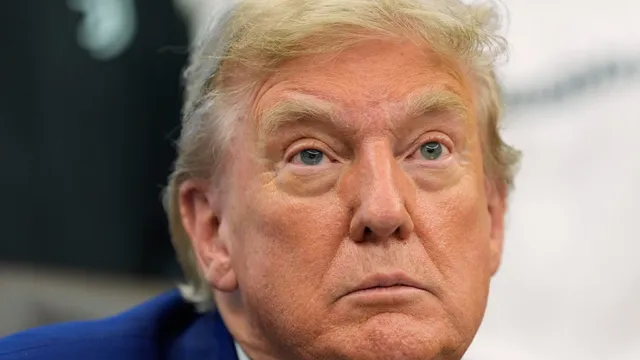
Kneecap member charged with terrorism for waving Hezbollah flag at concert
2025-06-19 18:08- Liam O hAnnaidh was charged with a terrorism offence after a concert incident.
- Kneecap argues that the charge represents a political attempt to silence dissent.
- The case has generated significant public support, highlighting issues of freedom of speech.
Express your sentiment!
Insights
In the United Kingdom, Liam O hAnnaidh, a member of the Irish rap group Kneecap, was charged with a terrorism offence for allegedly displaying a Hezbollah flag at a concert held at the O2 Forum in Kentish Town, London, on November 21, 2024. The Metropolitan Police pressed charges after investigating video footage from the concert, which the group claims was taken out of context. Kneecap has vocally expressed their support for Palestine, sparking controversy and backlash, including the cancellation of several of their shows due to safety concerns. The group denies supporting Hezbollah or Hamas, both of which are proscribed organizations in the UK. Kneecap maintains that the accusations underline a form of political policing aimed at silencing their message and has rallied substantial public support ahead of O hAnnaidh's court appearances. On June 18, 2025, O hAnnaidh appeared at Westminster Magistrates' Court where he was released on unconditional bail. Supporters gathered outside the courthouse, waving Palestinian and Irish flags, with many chanting slogans in defense of the rapper and the band. They accused the authorities of running a ‘witch hunt’ against artists who express political views through their art. The case is a significant legal and cultural flashpoint surrounding freedom of expression in artistic communities in the UK and highlights broader tensions related to political discourse in relation to Israeli-Palestinian conflict dynamics. O hAnnaidh is scheduled to reappear in court on August 20, where further arguments related to the case will be addressed. Kneecap's recent rise to fame, coupled with their provocative statements and political art, has positioned them as a prominent voice within discussions about identity, nationalism, and the Palestinian issue, further enraging supporters of the status quo.
Contexts
The concept of freedom of expression is pivotal in the legal framework of the United Kingdom, where it serves as a foundational principle in democratic society. The UK is bound by the European Convention on Human Rights (ECHR), which enshrines the right to freedom of expression under Article 10. This right is not absolute and is subject to certain restrictions as outlined in the article itself. The UK courts have consistently played a crucial role in interpreting these laws through various legal cases that highlight the balance between free expression and other competing rights, such as privacy and national security. There have been numerous landmark cases that illustrate the complexities of freedom of expression in the UK legal landscape, where individual rights often clash with societal interests and legal limitations. One of the significant areas in which freedom of expression has been tested in the UK is in cases of hate speech. The Public Order Act 1986 and the Communications Act 2003 impose restrictions on speech that promotes hatred based on race, religion, and sexual orientation. Court cases such as R v. J et al. highlighted the importance of these laws in protecting individuals and communities from incitement to hatred while also emphasizing the importance of teasing out the nuanced line that separates free speech from hate speech. These cases ultimately contribute to an evolving understanding of how freedom of expression is exercised and constrained within different contexts. Another critical aspect relates to the media's role in the exercise of freedom of expression. The case of Reynolds v. Times Newspapers Ltd demonstrated the legal principle of qualified privilege that allows for certain defenses in defamation cases involving public figures. This case underscored the media's right to disseminate information that is in the public interest, while balancing this right against individuals' rights to protect their reputation. Thus, the legal framework surrounding defamation laws continues to adapt in response to the changing nature of digital communication and contemporary issues surrounding misinformation, privacy, and accountability. The interplay between freedom of expression and national security is another significant focus in many legal cases. The case of R (on the application of Guardian News and Media Limited) v. City of Westminster Magistrates Court examined the extent of the media's right to report on national security matters. In these instances, the courts must navigate delicate balances, ensuring that national security concerns do not unduly infringe upon the public's right to access information. Ultimately, as various legal cases unfold, the UK's legal system continues to grapple with the complexities of freedom of expression, the societal implications of its restrictions, and the dynamic relationship between individual liberties and broader societal responsibilities.